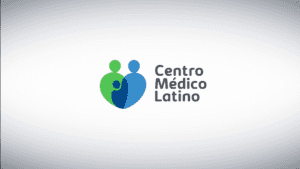Atención médica para personas mayores La atención geriátrica se conoce más formalmente como atención geriátrica y, a veces, al médico geriátrico también se lo denomina geriatra. Es un médico que se especializa en diagnosticar y tratar los trastornos y enfermedades más comunes en los adultos mayores. También puede asesorar a sus pacientes sobre formas de prevenir o, al menos, retrasar el desarrollo de discapacidades relacionadas con la edad. Algunos ejemplos de afecciones que un geriatra podría tratar incluyen las siguientes:
• Enfermedad de Alzheimer
• Osteoartritis
• Osteoporosis
• Enfermedad de Parkinson
• Apnea del sueño
• Incontinencia urinaria
¿Qué es la osteoporosis?
La palabra "osteoporosis" significa literalmente "hueso poroso" y es una afección en la que los huesos se vuelven gradualmente menos densos. Esa pérdida de densidad hace que los huesos sean cada vez más frágiles y, por lo tanto, aumenta el riesgo de fracturas. Los pacientes con osteoporosis son especialmente propensos a romperse la muñeca, la cadera o las vértebras.
La afección es más común en mujeres mayores de 50 años que han pasado por la menopausia. Las personas asiáticas y caucásicas tienen más probabilidades de desarrollar la afección que las personas de raza negra. Algunas afecciones, como la enfermedad de Crohn, la artritis reumatoide o el hipogonadismo, pueden aumentar el riesgo de desarrollar osteoporosis. Algunos medicamentos, como el litio, los anticonvulsivos o los antiácidos, también aumentan el riesgo.
Un tipo especial de radiografía puede ayudar a determinar si un paciente tiene osteoporosis o el riesgo de desarrollarla. Un paciente puede reducir el riesgo de desarrollar osteoartritis consumiendo suficiente calcio y vitamina D y haciendo ejercicio. Esto último es particularmente beneficioso, ya que mantiene fuertes los huesos y los músculos y reduce el riesgo de caídas.
¿Qué es la polifarmacia?
La polifarmacia describe los efectos de tomar múltiples medicamentos para diferentes afecciones. Las personas mayores con varias afecciones crónicas son particularmente susceptibles, ya que los médicos que tratan esas afecciones pueden no saber acerca de todos los medicamentos o suplementos que el paciente ya está tomando. Por ejemplo, un paciente puede tener una enfermedad cardíaca y diabetes, y dos médicos diferentes lo están tratando. A menos que esos médicos sepan qué medicamentos ya está tomando el paciente, podrían recetar algo que resulte en interacciones farmacológicas.
Para empeorar las cosas, las personas mayores reaccionan a los medicamentos de manera diferente que las personas más jóvenes. No absorben ni metabolizan los medicamentos tan bien, por lo que es posible que no obtengan el beneficio completo del medicamento o que los efectos tarden más en desaparecer. Por lo tanto, un geriatra, en particular si es el cuidador principal del paciente, deberá mantener una lista actualizada de todos los medicamentos recetados, suplementos y medicamentos de venta libre que el paciente esté tomando actualmente. También debe informar al paciente sobre cualquier medicamento de venta libre que se sepa que interactúa mal con los medicamentos recetados que esté tomando actualmente.
En el caso de los cuidados médicos para personas mayores, el geriatra que trabaja con un nuevo paciente puede pedirle que traiga todo lo que esté tomando actualmente: medicamentos con receta, medicamentos de venta libre, vitaminas y otros suplementos. De esta forma podrá clasificar todo y detectar posibles problemas. El geriatra recomendará los cambios necesarios.
Contáctenos para obtener más información
Para obtener más información sobre la atención médica para personas mayores, lo invitamos cordialmente a comunicarse y programar una cita con Centro Médico LatinoEn nuestras convenientes ubicaciones en Charlotte y Monroe, nuestro atento y dedicado equipo de profesionales estará encantado de explicarle sus opciones en detalle y responder cualquier pregunta que pueda tener. Contáctenos hoy Para concertar su consulta: ¡estamos deseando hablar con usted!







